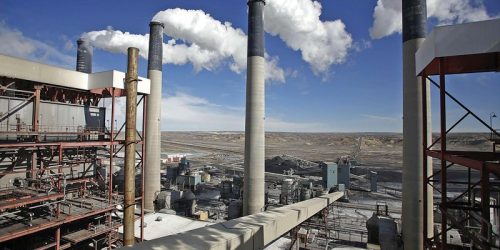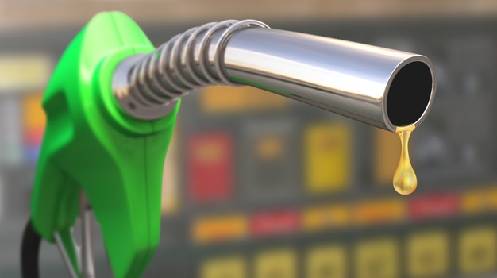The federal government is all set to reduce gas tariff up to 35 per cent for the independent power producers (IPPs) operating on low quality gas in a bid to rank these plants in high merit order.
This plan will result in putting burden on the consumers to cross-subsidize the gas for power plants and the rate of federal excise duty may also go up.
According to the current formula, the government prioritizes the operation of those power plants which operate on cheaper fuel – dedicated gas which is low quality and cannot be transported to domestic consumers. Power plants and fertilizer sectors use this gas.
The IPPs negotiation committee had agreed to reduce gas tariff for the plants under a deal. A summary has been moved to the Economic Coordination Committee (ECC) of the Cabinet for formal approval.
The Gas Sales Agreement (GSA) for the Engro Energy, the Foundation Power and the Uch-11 are aligned with expiry of respective power purchase agreements (PPA).
As per the Power Policy, 2002, the power generation dispatch to these power plants is based on the lowest energy cost component of each plant in order of merit.
Thus the power plants with lower fuel price component get dispatch for power generation and any increase in fuel price component impacts the merit order of dispatch and resultantly at times the power plants remain idle until the next dispatch order.
During the period of unavailability of dispatch, the plants do not get payment for fuel component –energy purchase price – while the payment of capacity – capacity purchase price – is also delayed which adds to the circular debt of the power sector.
In the case of the Foundation Power Company Daharki Ltd (FPCDL), the Mari Petroleum Company Limited (MPCL) supplies low BTU gas from its Mari Deep Reservoir.
The notified wellhead gas price for the MPCL gas field for the period July-Dec 2020 is Rs256.213 per one million British thermal units (mmbtu) whereas the MPCL supplies this gas at notified gas tariff or sale price of Rs857 per mmbtu effective from September 1, 2020.
The wellhead gas price (Rs256.2131 per mmbtu +Rs.10 per mmbtu FED) and notified gas sale price of Rs590.7869 per mmbtu is required to be deposited into government treasury as the Gas Development Surcharge (GDS) under the provisions of the GDS Ordinance, 1967 and the rules made thereunder.
If the plant consumes up to 77% of allocated gas volume, a GDS of Rs5,124 million becomes payable. Pursuant to the 7th National Finance Commission (NFC) award of 2010, the net proceeds of the GDS are distributed amongst the provinces under Article 181(1) of the Constitution.
For this purpose, the royalty on natural gas and development surcharge are clubbed into one and average rate per unit (mmbtu) is worked out for arriving at distribution of proceeds among provinces.
Under the NFC award, the rate of excise duty on natural gas was set at Rs10 per mmbtu to give effect to the revised formula.
In accordance with the National Electric Power Regulatory Authority’s (Nepra) State of Industry Reports for FY19 and FY20, the FPCDL’s utilized generation capacity was 68% during financial year 2020 in comparison to utilization in financial year 2019 while the gas consumption was 62%.
Similarly, the Engro Powergen’s utilized generation capacity was 51% whereas gas consumption was 54 per cent during the same period.
For optimized utilization of the plant’s generation capacity, the FPCDL requested for downward revision of its gas tariff either at 10-20% of the MPCL’s wellhead price or up to 35% of notified gas sale price.
This is likely to keep the plant high in the merit order, to generate low-cost per unit power, ensuring 90% availability of power plant and continued utilization/monetization of dedicated low BTU gas supply.
But downward revision of gas tariff from Rs875 per mmbtu to Rs300 per mmbtu will have an impact of Rs4,829 million per annum considering estimated gas utilization up to 77% of allocated volume.
On similar grounds, the Engro Powergen Qadirpur (EPQL) has also made a request for downward revision of its current gas tariff of Rs857 per mmbtu to Rs500 per mmbtu.
In the case of the EPQL, the gas sale price or gas tariff for the SNGPL’s consumers is determined based on its annual revenue requirement – average prescribed price ie, Rs623 per mmbtu for FY 21.
Accordingly, sale of gas below the average prescribed price will lead to cross subsidization or revenue deficit for the Sui Northern Gas Pipelines Limited (SNGPL) equivalent to Rs996 million per annum.
The non-utilization of gas results in less generation of the GDS while setting a gas tariff below the prescribed price would attract revenue deficit or cross subsidization to meet the deficit.
Also read: IMF wants Pakistan to up power, gas tariffs
The Power Division had taken up the issue of utilization of low BTU gas by power plants.
The matter was discussed during the IPPs negotiations and the report stipulates that low BTU gas pricing anomaly has caused the IPPs, operating on such reservoirs, to be ranked lower in the merit order thereby reducing their dispatch.
In view of the current merit order rankings and effective utilization of indigenous resources with no alternative use, low BTU gas prices should be rationalized by pegging them to local energy sources.
This will allow such IPPs to be ranked higher in the merit order enabling maximum utilization of availability of indigenous resources and promoting low-cost energy generation to end consumers.
The Power Division has suggested table recommendation of the IPPs negotiations committee before the ECC for formal approval.
The proposals have been submitted before the ECC which recommend that gas sale price for the FPCDL’s power plant utilizing low BTU gas may be revised to Rs300 per mmbtu.
The resultant impact of reduction of the GDS may be mitigated by increasing the Federal Excise Duty (FED) on natural gas up to Rs4 per mmbtu.
The government will make necessary amendments in the FED Act, 2005 through the Finance Act. The ECC has been proposed to revise the gas sale price for the EPQL’s plant downward to Rs500 per mmbtu.
The SNGPL’s revenue deficit may be mitigated by cross-subsidizing the impact of sale prices on other consumers of the SNGPL or alternately gas sale price may be pegged with average prescribed price of the SNGPL determined by the Oil and Gas Regulatory Authority so as to avoid revenue loss of the SNGPL.






